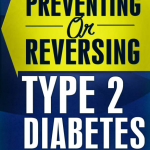One of the changes measured in Alzheimer’s patients is how their brains, during the cognitive declines of the disease, lose the ability to properly utilize blood glucose. This absence of energy affects the brain’s chance of proper function, and is thought to play a role in the effects of dementia.
Ketones are a different form of energy that don’t seem to be as affected by the changes in how glucose is tapped by the brain. Produced by the liver, the fatty acids are an energy source that is normally used by the body when other dietary sources of energy aren’t available. Typically this is during periods where the individual hasn’t eaten recently, or hasn’t eaten sugar or carbohydrate rich foods that are directly converted to blood glucose by the body.
Alzheimer’s patients experience a drop of about half their neural metabolic rates. But some studies have shown that even while the brain stops processing blood glucose as effectively or efficiently, ketones can step in to help shore up the drop in available energy for the brain.
Going on a ketogenic diet is one way to boost ketone production. Another is triglyceride supplements. Doctors are hopeful one or both might offer treatment options for dementia patients, but research is still ongoing.
Doctors think the ketone diet might help treat Alzheimer’s Disease by boosting brain metabolism. #HealthStatus
Follow HealthStatus
Tweet Now
Key Points:
- 1With the Alzheimer’s disease, the brain loses its ability to use glucose to make energy.
- 2Increasing the uptake of ketones in the brain can have a positive affect on overall cognitive health.
- 3One way to increase the amount of ketones in the blood is through a ketogenic diet.
See the original at: https://www.alzheimers.net/how-ketones-can-combat-alzheimers/








Reply